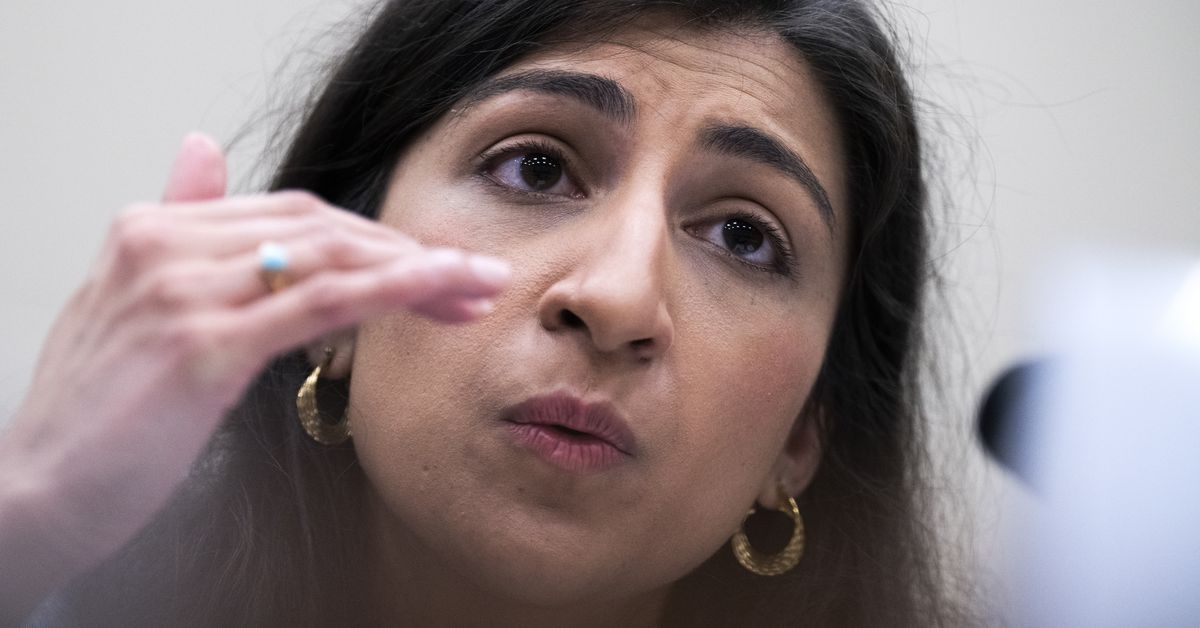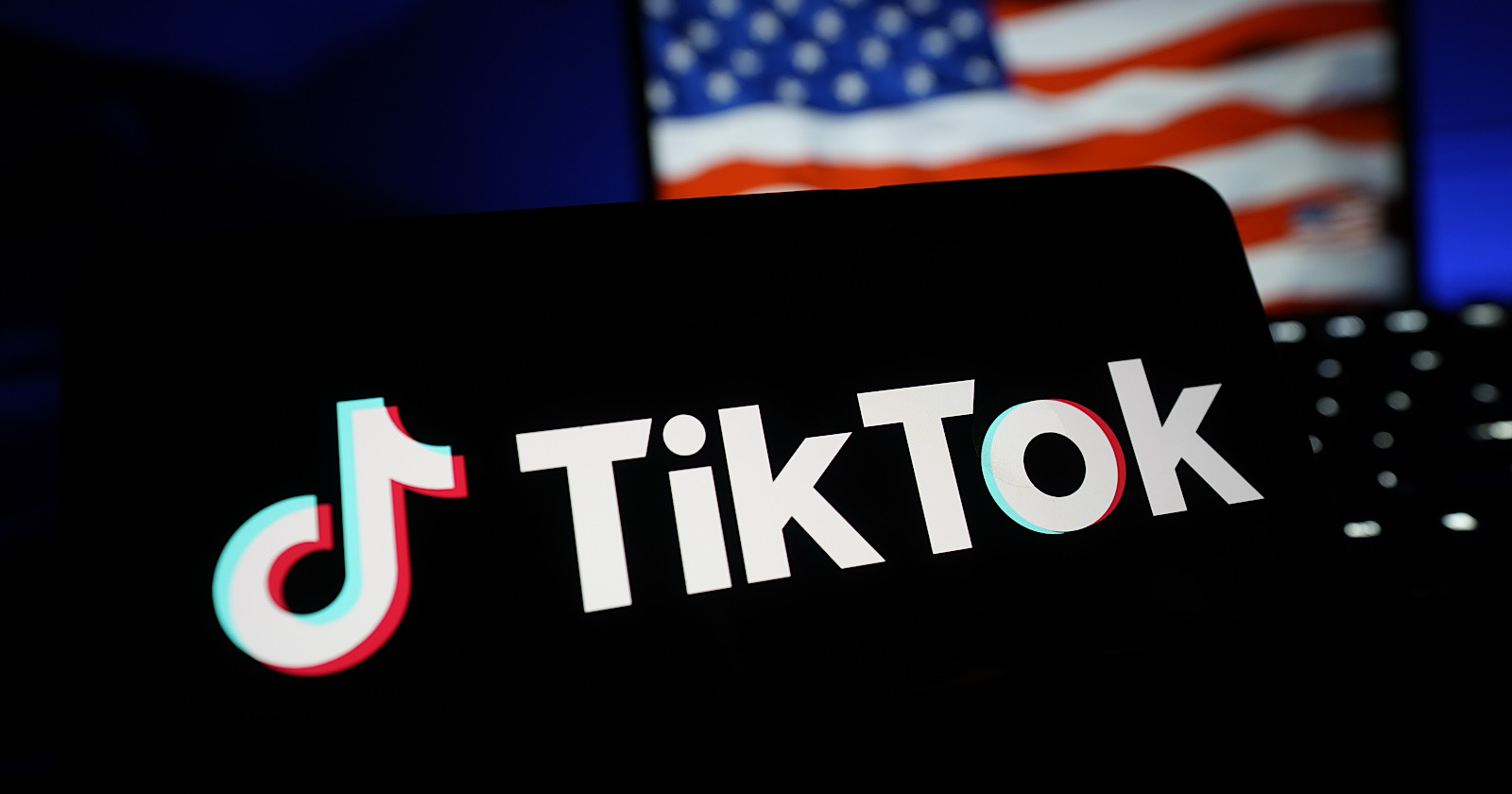FTC Chair Lina Khan’s plan to take on Big Tech, in 9 questions
FTC Chair Lina Khan testifies at a House hearing in May 2022. | Tom Williams/CQ-Roll Call, Inc via Getty Images“I imagine that this will be a very active year ahead.” Lina Khan’s year-long tenure heading up the Federal Trade...

Lina Khan’s year-long tenure heading up the Federal Trade Commission — she was sworn in on June 15, 2021 — has been unorthodox, to say the least. Khan is arguably the highest-profile chair in the agency’s history, and her appointment was surprising in more ways than one.
Until her appointment, Khan, just 32 at the time, was best known for her law school paper “Amazon’s Antitrust Paradox,” which detailed how antitrust laws and the courts’ interpretation of them over the last several decades didn’t adequately address the business models of the digital platforms that dominate the economy and our lives today. She became the face of the progressive antitrust reform movement, and her ascendancy to the top of the FTC was seen as a major victory for it. Now she has a chance to reshape one of the country’s two antitrust enforcement arms — the Justice Department is the other — into an agency that can address the problems her previous work laid out.
It’s an auspicious time for the chairperson: The Senate recently confirmed the agency’s fifth commissioner, Alvaro Bedoya, finally giving Khan a Democratic majority for the foreseeable future. That means she no longer has to limit her actions to what her Republican commissioners will vote for. We should soon see what that enables her to do and which companies and business practices she’ll take on.
But not everyone is on board. Republicans have made no secret of their distaste for Khan’s approach, and it’s likely that they’ll take control of one or both houses of Congress after the midterms. That could make Khan’s job harder.
As her second year at the helm of the FTC approaches, Khan spoke to Recode’s Sara Morrison and Jason Del Rey about why antitrust reform is important, what her priorities are, how she’s approaching the consumer protection side of the FTC’s work, and if she’s enjoying herself. This interview has been edited for length and clarity.
The need for antitrust reform is often framed as a way to counter threats to the economy and democracy that massive companies — especially very powerful tech companies — present. But the average American may only care about what affects them personally in the short term, and a lot of them genuinely like the cheaper or even free stuff they get from some of these companies. What’s your pitch to them about why they should care about this? What are the direct and immediate benefits to them?
As a general matter, we enforce the laws as they already stand. And so it’s our obligation to make sure we’re fully exercising our statutory obligations to prevent unfair methods of competition and monopolistic practices. The tech context, in particular, can have a whole host of ramifications for Americans. It can affect whether people can start their own business and enter the market, or whether they’re going to be squashed out immediately. It can affect how much people are getting paid, as consolidation among employers can lead to a reduction in how much people are being paid, as well as their working conditions and the precarity of their work.
It also affects innovation and what types of products and services are available in the first place. We want to have an economy that is open, that’s competitive, where the next successful startup and entrepreneur who brings a product to market that consumers really love is able to thrive, rather than get squashed out at the inception. Those were some of the key goals animating our antitrust laws and the vision that the lawmakers had when passing these laws.
Where are we seeing consumers being harmed by some of these services?
We’ve seen, particularly in the tech context, how a lack of competition can also contribute to the degradation of privacy. One of the claims as noted in our Facebook complaint was that in some instances, the lack of competition that users have had ended up leading to worse privacy. When Facebook was able to engage in data practices that users may want to extricate themselves from, they found that, because this company already acquired Instagram and WhatsApp, their alternative options really had been eliminated. Those are all really important factors that affect people in their day-to-day lives.
When companies don’t face robust competition, or when they’re allowed to just squash out competition, they can become too big to care. They can impose all sorts of terms or contractual provisions that really just leave Americans in a position of take it or leave it. And in as much as these products and services, these digital tools, are becoming essential to navigating day-to-day life, we want to make sure that people have choices. They’re not just stuck in place with a company that can do whatever it wants.
A lot of antitrust advocates and experts tell me that you have this hugely ambitious vision for the FTC but relatively little time and resources to carry it out, especially when you’re going against Big Tech companies that have plenty of both. How are you picking your battles here?
I’ll say a couple of things upfront. We have certain principles that we’re using to focus our priorities and where we’re devoting resources. For example, we’re focused on dominant firms. We’re focused on firms that may be sitting upstream, like dominant intermediaries that may be facilitating a whole set of harms. We’re really trying to avoid looking at one-off effects and instead trying to understand what are some of the systemic causes of these harmful practices, be it certain types of business models, be it certain types of conflicts of interest, be it just structural dominance by itself, and really targeting those root causes to make sure that we’re able to be most effective with the limited resources we have.
How are you setting the FTC for the future?
In addition to vigorously enforcing the law and the tools that we currently have, we’re also making sure that, where needed, we’re updating our tools. So this is why our project to revise the merger guidelines is so essential. This is the key enforcement manual that the antitrust agencies use to determine and assess and analyze whether mergers and acquisitions are lawful or unlawful. We, with the DOJ, in January launched a revision of this process to make sure that these guidelines are really reflecting the commercial realities that we live with in our new economy. There are all sorts of ways in which the economy that we have today as well as the business dynamics and incentives that are created by new types of business models are totally scrambling business strategy. That really requires us to update our approach when we’re assessing mergers — be it in the context of digital markets or all sorts of other markets.
As we see more and more of the economy digitize, these types of issues are not just going to be limited to what we currently think of high-tech markets; it’s really going to be industry-wide. So we need to make sure that our tools, our enforcement manuals, are fully reflecting market realities. And also reflecting controlling law — we want to make sure that we are not handicapping ourselves.
How does now having all five commissioners — three of them Democrats — change your goals or your plans for the rest of your tenure?
I imagine that this will be a very active year ahead. Oftentimes these types of initiatives can take a lot of time to come to fruition. And I think this upcoming year is when we do plan to see them come to fruition. That includes, for example, the merger guidelines.
We’ve shared publicly that user privacy and commercial surveillance practices that may be undermining user privacy or security is a big area of focus. And we’re figuring out how we can use all of the tools at our disposal, including potential market-wide rules. So that’s something we continue to consider. We’ve also shared publicly that figuring out whether we need to complement our case-by-case enforcement approach to antitrust with potential competition rules is something that remains top of mind for us so that we can make sure we are providing predictability, clarity, and also ensuring that our enforcement is more efficient.
Those are some top items, but I fully expect that we’ll also continue to see major lawsuits culminate in the coming year, again focused on what we see as areas where Americans are most suffering from unlawful conduct in the marketplace.
The FTC’s role also includes consumer protection. One area you’ve taken action in relates to online reviews. How can you ensure that, as more shopping moves online, more Americans aren’t getting duped by fake reviews or misleading reviews?
We’ve taken a few steps in particular with regards to the issue of fake reviews. We brought an enforcement action against Fashion Nova, where we had alleged that Fashion Nova had suppressed reviews, and put companies on notice that that type of conduct is illegal. We also developed what’s known as a notice of penalty offense on fake reviews, where we basically were able to put hundreds of businesses on notice about how these types of fake reviews and suppression of reviews is illegal. Once we send out these notices, any subsequent violation by those same actors can result in civil penalties. So those types of actions can be extremely significant in terms of making sure parties are on notice.
But then also we are ensuring that we have the ability to impose civil penalties and to deter firms from engaging in these practices in the first place. We’re also considering whether to update and tighten our guidelines around fake reviews or manipulative reviews or suppression of reviews. We put out a notice seeking public comment in particular on this to the endorsement guides, which is the set of guidelines that businesses look to to identify what’s legal or what’s illegal in this space. So we’re actively looking to crack down on fake reviews: They have proliferated online and are really misleading users. So we want to make sure that we’re updating those guides and market participants are on notice.
I just saw that it’s going to be an antitrust summer, with possibly two bipartisan antitrust bills set to become law. Those would give you more authority, so how does your mission change? And what happens if you don’t get any of them?
We stand ready to enforce and administer any laws that Congress passes. There are a whole set of legislative proposals being considered, which would range from increasing our resources and our budget to restoring what’s known as our 13(b) authority, which gives us the ability to get back money for consumers when they’ve been defrauded or when they’ve been subject to unlawful practices. Last year, there was a Supreme Court decision, AMG, that severely limited our ability to actually obtain money back for consumers. That’s made a big difference and really harmed our ability to make sure people are whole when they’re victims of unlawful conduct.
There are obviously a whole set of legislative proposals around digital markets. I think those efforts are incredibly important. And it’s heartening to see how much bipartisan agreement there is around how important these markets are and how a lack of fair competition in these markets can really undermine competitiveness and really harm Americans. So I’m extremely supportive of those efforts.
Something we hear from small businesses is that they’re frustrated by how big online marketplaces treat them and the lack of government intervention to protect the little guys. I’m curious if you have a message to the hundreds of thousands, maybe millions, of small online merchants in this country who feel like they need more intervention from the government when it comes to dealing with big marketplaces?
One of my priorities has been to make sure that the FTC is being holistic in how it’s identifying and diagnosing harm. Obviously consumers can be harmed by monopolistic or unfair deceptive practices, but so can independent businesses, so can workers. And we need to make sure that we’re using our tools to fully protect all Americans, including businesses, where they’re being harmed by anticompetitive or unlawful practices.
We’ve been able to really move forward with key enforcement actions where dominant businesses have been abusing their power against independent or smaller businesses, and we’ve been able to secure important remedies in those instances. There was one case in particular, involving a company called CafePress, where businesses were really subject to and the victims of unlawful conduct, and we thought it was important to act there.
We fully recognize that monopolistic practices harm a whole set of Americans, including businesses, and we want to make sure that our markets are open and competitive so that businesses are able to compete fairly and if they have a product or service that they want to bring to market, that they’re not subject to the whims of a dominant firm that can squash them.
Are you having fun?
This job is a tremendous honor. It’s an incredible opportunity. I think there’s an astounding amount of excitement out in the world around the FTC’s mission. The FTC is on the front lines of some of the most urgent problems that Americans face. And I’m incredibly excited about our ability to bring all of our tools to bear on our ambitious agenda.

 Aliver
Aliver 





















![Run An Ecommerce SEO Audit in 4 Stages [+ Free Workbook]](https://api.backlinko.com/app/uploads/2025/06/ecommerce-seo-audit-featured-image.png)









